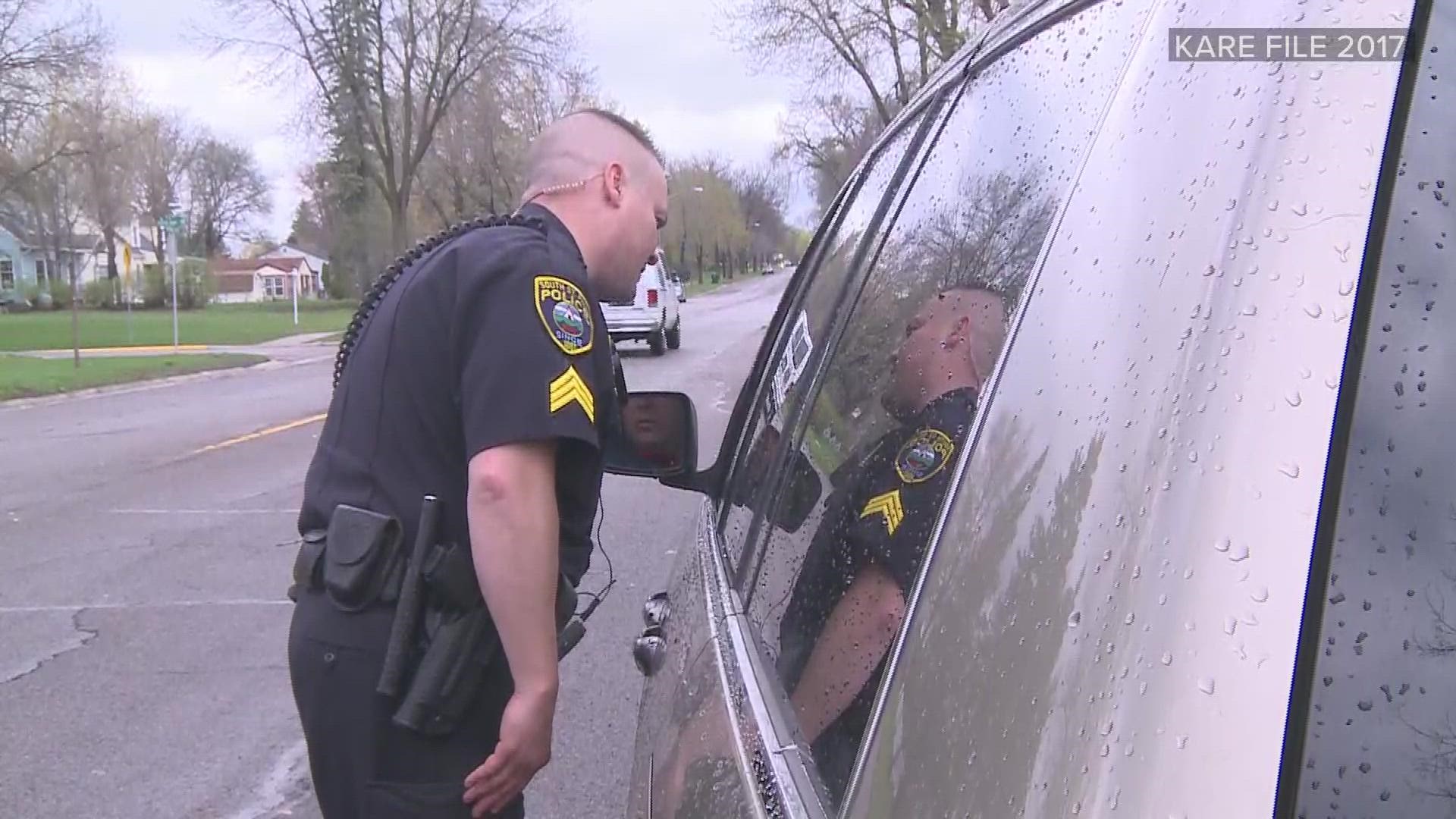ST PAUL, Minn. — There's a movement underway in the Minnesota Legislature and Congress to take a different view of police officer suicides, when it comes to what survivors benefits their families are entitled to receive.
As it currently stands, when an officer dies by suicide it's not considered a death in the line of duty, even if that officer suffered post-traumatic stress disorder that's clearly job related.
Such is the case of Sgt. Cory Slifko, who died by his own hand in 2019 after nearly two decades serving with the South Saint Paul Police Department. He had been diagnosed with PTSD and had been through therapy, but under current laws, his death couldn't be classified as being in the line of duty.
"He made that sacrifice every day to protect those citizens, so I feel this is what he deserves and the honor he should get," Katie Slifko, Cory's widow, told KARE Friday.
"Over the years, it’s a cumulative stress, PTSD, chronic pain. The weight of the badge is heavy and, as a lot of those officers talked about, you just can’t shake it off."
A bipartisan group of state lawmakers have crafted legislation that would extend survivors benefits to families of officers and firefighters who take their ow lives after being diagnosed with PTSD. Katie Sifko took part in a roundtable at the State Capitol Friday to learn more about that effort.
Those benefits currently include a $100,000 cash benefit and free in-state college tuition for Sgt. Slifko's surviving children.
Second District Congresswoman Angie Craig, who organized the panel, has launched a similar bill to cover federal public safety officers. She noted at least four of the Capitol Police officers who lived through the January 6 U.S. Capitol incursion have since taken their own lives.
Republicans and Democrats have signed onto Rep. Craig's bill but it's still in its early stages. She said she wanted to raise awareness about the Slifko family's dilemma because they are her constituents.
"The truth is Cory Slifko died because of his job and that’s how we need to treat that death," Rep. Craig told KARE.
"All of the terrible tragedies he had witnessed. There was documented mental health issues and PTSD and chronic pain and all kinds of issues he had before he died."
She applauded Katie Slifko were stepping into the spotlight to turn her family's private nightmare into a public cause that will ultimately help the families of other officers, firefighters and paramedics.
There's growing recognition that what officers experience over the courses of their careers can catch up with them. Many hide it from their coworkers and managers because they don't want it to harm their careers or be viewed as some sort of weakness.
Katie Slifko said that wasn't the case with her late husband.
"We talked a lot. He shared a lot. I helped him get up with therapy. We went to therapy together to kind of go through this process. He talked about his day whether it was good or bad. He shared a lot."
Craig's panel included law enforcement leaders and state legislators who've been working on the bills. They include Senators Karla Bigham of Cottage Grove and Zach Duckworth of Lakeville, as well as Representatives Kelly Moller of Shoreview, Pat Garofalo of Farmington, and John Huot of Rosemount.
Rep. Robert Bierman of Apple Valley and Rep. Kaela Berg of Burnsville also participated and expressed their support for the initiative.
"Cory deserves this recognition and honor for his 20 years of service," Kaite Slifko told legislators.
"I’m going to be here for the long haul as well."

